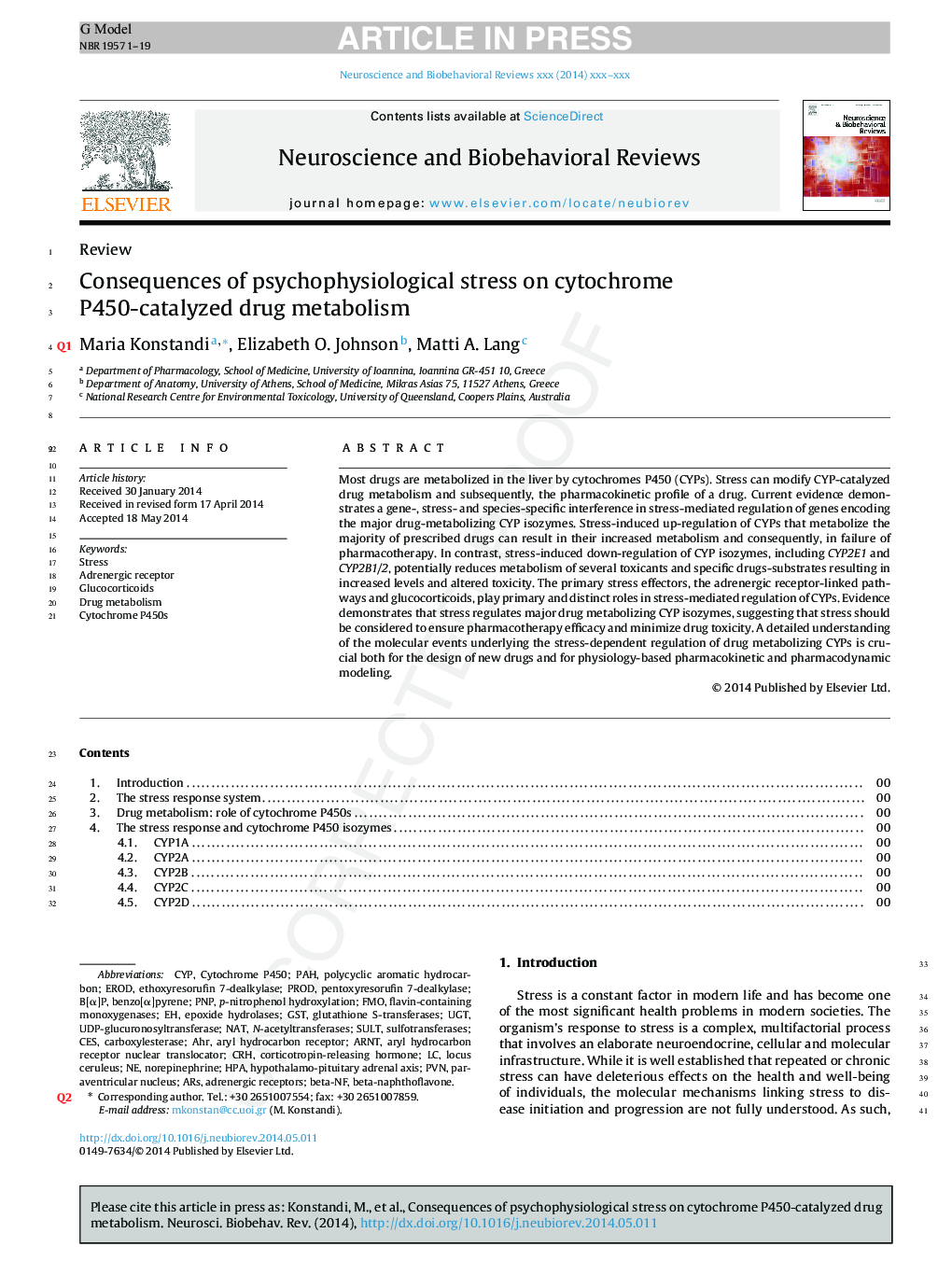| Article ID | Journal | Published Year | Pages | File Type |
|---|---|---|---|---|
| 7303969 | Neuroscience & Biobehavioral Reviews | 2014 | 19 Pages |
Abstract
Most drugs are metabolized in the liver by cytochromes P450 (CYPs). Stress can modify CYP-catalyzed drug metabolism and subsequently, the pharmacokinetic profile of a drug. Current evidence demonstrates a gene-, stress- and species-specific interference in stress-mediated regulation of genes encoding the major drug-metabolizing CYP isozymes. Stress-induced up-regulation of CYPs that metabolize the majority of prescribed drugs can result in their increased metabolism and consequently, in failure of pharmacotherapy. In contrast, stress-induced down-regulation of CYP isozymes, including CYP2E1 and CYP2B1/2, potentially reduces metabolism of several toxicants and specific drugs-substrates resulting in increased levels and altered toxicity. The primary stress effectors, the adrenergic receptor-linked pathways and glucocorticoids, play primary and distinct roles in stress-mediated regulation of CYPs. Evidence demonstrates that stress regulates major drug metabolizing CYP isozymes, suggesting that stress should be considered to ensure pharmacotherapy efficacy and minimize drug toxicity. A detailed understanding of the molecular events underlying the stress-dependent regulation of drug metabolizing CYPs is crucial both for the design of new drugs and for physiology-based pharmacokinetic and pharmacodynamic modeling.
Keywords
NATlocus ceruleusARNTFMOPNPSULTN-AcetyltransferasesERODPRODARSGSTUGTCyPp-Nitrophenol hydroxylationCRHPAHAHRB[α]PUDP-glucuronosyltransferasearyl hydrocarbon receptor nuclear translocatorStressCESbeta-naphthoflavoneBenzo[α]pyreneSulfotransferasescytochrome P450sCytochrome P450PVNDrug metabolismHypothalamo-pituitary adrenal axisHPAnorepinephrineparaventricular nucleuscorticotropin-releasing hormoneEpoxide hydrolasesPolycyclic aromatic hydrocarboncarboxylesteraseglutathione S-transferasesGlucocorticoidsadrenergic receptoraryl hydrocarbon receptorAdrenergic receptors
Related Topics
Life Sciences
Neuroscience
Behavioral Neuroscience
Authors
Maria Konstandi, Elizabeth O. Johnson, Matti A. Lang,
